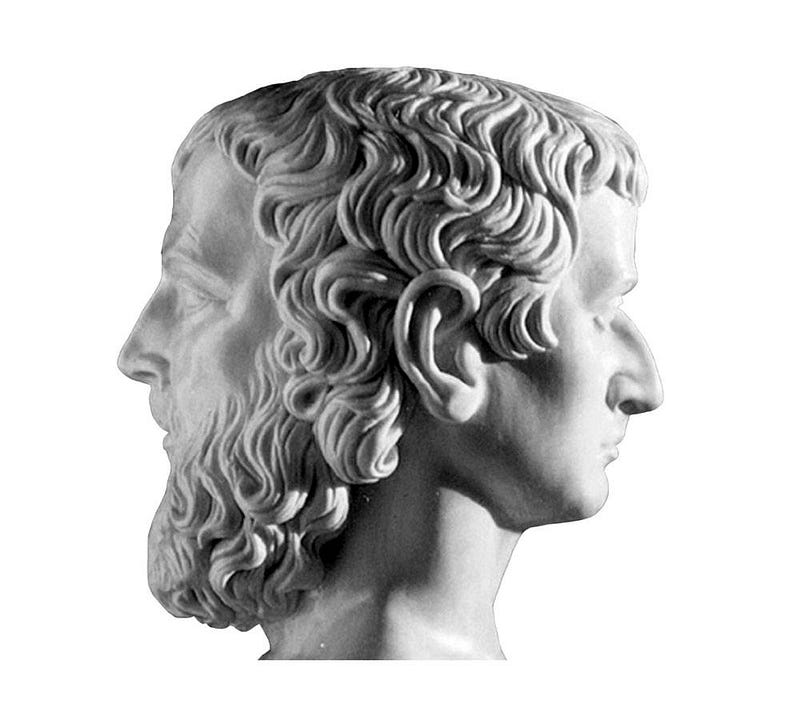Inversion
3 min readWhen we think about the future, we tend to focus on things that will likely change. We like progress, shining new things.
You know, everybody expected flying cars from this decade. We are gonna fail on this one, aren’t we?
Anyway. What if we turned things upside down?
What if we thought about the future in terms of things that won’t change?

Janus, the Roman god of beginnings, gates, transitions, time, duality. It seemed the right god to mention, giving the topic and the month of this issue, right?
Jeff Bezos has something to say about it:
“I very frequently get the question: ‘What’s going to change in the next 10 years?’ And that is a fascinating question; it’s a very common one. I almost never get the question: ‘What’s not going to change in the next 10 years?’
And I submit to you that that second question is actually the more important of the two — because you can build a business strategy around the things that are stable in time. … In our retail business, we know that customers want low prices, and I know that’s going to be true 10 years from now. They want fast delivery; they want vast selection. It’s impossible to imagine a future 10 years from now where a customer comes up and says, ‘Jeff I love Amazon; I just wish the prices were a little higher,’ or ‘I love Amazon; I just wish you’d deliver a little more slowly.’ Impossible.”
This is it. Disclaimer: Amazon is evil. I know it, you know it, Jeff Bezos knows it. But the example is excellent, isn’t it?
Same principles; different problems
Under this perspective, a lot of things start making sense. Huge companies have been built around this idea. They solve evergreen human needs using the best tools available.
We will always need to find good, useful information as fast as possible. First, we got encyclopedias. Well, not “first”, but you know what I mean. Then, someone invented an index of all web pages so we could search through them conveniently. The need is the same, it hasn’t changed. What has changed is the best way to solve it.
Same with transportation, for instance. 10 years from now we’ll still need to get from point A to point B, and doing it as fast and cheap as possible. We got carriages, then cars. In a decade, we might be using autonomous cars or teleportation. Who knows. But the inner need is still the same. It will keep being the same, no matter what.
Why is this idea interesting? Because it applies to all levels (damn, it’s a mental model after all). Think about learning: what won’t change in 10 years? Specific tools and processes may disappear. But certain things will still be there. The first principles of knowledge won’t change in a decade. Learn those. Forget the details.
Think about it. Think about things around you, things that will still be a reality 10 years from now. And stick to them.